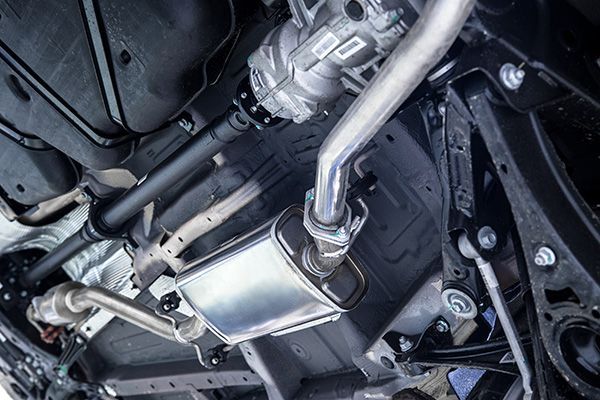Loading ...
Missing business hours data / Error occurred while getting the data.
Transmission Trouble? Here Are 5 of the Most Common Issues.
July 15, 2020
Other than the engine, there is nothing more important in your vehicle than its transmission. The engine provides the power to the car. The transmission is what actually makes it move, as it transfers power from the engine out to the drive wheels.
At the first sign of any transmission problem, you will want to get your vehicle looked at by a professional mechanic. You never want to take any potential transmission issue lightly. A small concern can quickly turn into major internal transmission damage. Then, you may be facing major repairs—including a full transmission replacement or a custom rebuild. And let's just say that neither of those services are cheap.
Here are 5 of the most common transmission issues that we see at LightHouse Automotive , along with what you need to know if you think one of these problems may be occurring in your transmission:
1. Transmission Fluid Leaks
Perhaps the most common problem is when the transmission fluid leaks. It can happen when the pan gasket gets old and weak, which is an easy fix. Or, there could be a crack in the transmission housing or a leak somewhere else in the transmission assembly. If you notice transmission fluid leaking under your vehicle (usually a bright red color and easy to identify compared to brown engine oil or yellow/green radiator coolant), you will want to get it inspected as soon as possible.
2. Low or Old Transmission Fluid
Obviously, a transmission fluid leak can lead to the fluid levels getting too low. The fluid level can also dissipate on its own over time through use and evaporation. Likewise, the fluid can easily get dirty, contaminated or "burnt" the longer you drive the vehicle without transmission maintenance. If the fluid is bad or the levels or low, transmission components won't work properly and major internal damage can develop. As long as you address it early or maintain the fluid preventatively, you should just need a periodic standard transmission service to replace the fluid, the filter and the pan gasket.
3. Failing Torque Converter
In an automatic transmission vehicle, the torque converter controls the automated shifting from gear to gear as you drive. It is a very sensitive piece of equipment and it can fail. If you notice the vehicle is not shifting smoothly or won't engage in certain gears at all, then it could be a faulty torque converter that needs to be repaired or replaced.
4. Clutch Problems
In a manual transmission vehicle, the clutch system is what allows the driver to manually shift between gears. It is made up of several key components. Damage to any part can lead to significant clutch problems that will ultimately affect the performance of the transmission as a whole. At the first sign of any shifting issues, a loose clutch pedal or something else that just doesn't feel right, you will want to get your clutch system inspected.
5. Failing Solenoid(s)
Solenoid valves are used in modern automatic transmissions. They control the flow of automatic transmission fluid (ATF) that allow the vehicle to shift smoothly between gears. If one or more of the solenoids fails, you will notice it and you will not want to wait to get them repaired or replaced.
If you think you might have transmission problems, it's always better to be safe than sorry. You'll want to diagnose and repair any minor issues before they turn into major damage. If you are in the Colorado Springs area, you can count on expert transmission diagnosis and repairs at LightHouse Automotive . Call us today at (719) 465-0302 or schedule your service appointment online.




Loading ...
Missing business hours data / Error occurred while getting the data.
trouble finding us?
Loading ...
Missing nap lines data / Error occured while getting the data.


.jpeg)



